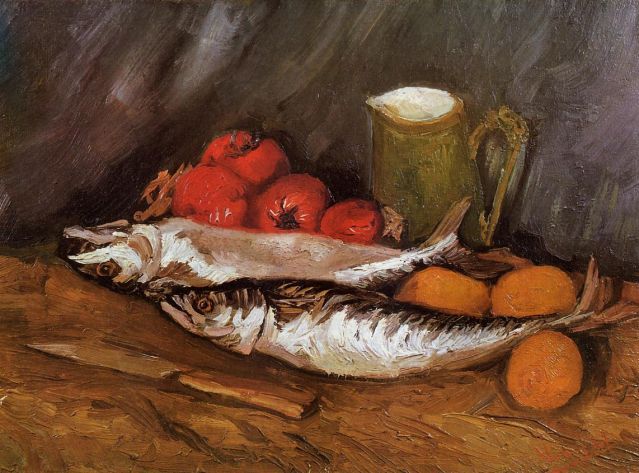Cognition
Are We Hardwired for Poetry?
Why you need to get more poetry into your life.
Updated April 30, 2024 Reviewed by Michelle Quirk
Key points
- Poetry is a sensual, meaningful, spiritually enlightening companion, especially during times of upheaval.
- The pleasure of sound and rhythm is hard-wired in us and linked to heartbeat and breathing rhythms.
- Poetry reveals us to ourselves and reveals the world to us. It is the language of the heart’s unspoken truths.

When I first began to do public readings of my poetry, I reached out for advice to my friend, Jody, an actor and improv teacher. Her first suggestion was mastery of voice. “Let’s work on expanding your lung capacity and opening your throat.” As homework, I was instructed to hum from the belly up and practice certain tongue twisters. Peter Piper picked a peck of pickled peppers. Susie sells seashells at the seashore. I was told to repeat these while washing dishes, showering, or walking the dog, saying the phrases faster and faster but keeping the enunciation perfect.
Soon enough, my lips, tongue, and brain were working in unison, and each word became a clear bell sound. As my practice continued, I grew more attuned to the language itself—its sounds, its rhythms, and the pure delight that comes with expressing something close to song. Most of us know this joy—of belting out a familiar tune—the enchantment of chanting prayers or mantras or singing hymns. We clap our hands, stamp our feet, and discover the deeply satisfying enrichment of reading a meaningful poem whose lines resonate in our bones.
The British/Irish poet/philosopher David Whyte recounts that when a person is tasked with informing another of unfortunate news, they will often lean in and speak in iambic pentameter. Whyte relates that this rhythm is how humans speak English when they want to be intimate with another person. (An iamb is a unit of two syllables where the first is an unstressed syllable followed by a stressed syllable as in the word delight, de-LIGHT.)
April is National Poetry Month, and while I’m not making a case for tongue twisters as poetry, I am suggesting poetry is an inherently sensual, meaningful, spiritually enlightening companion, especially during times of upheaval. Poetry asks us to befriend it, to sit with it patiently, as with a friend who is speaking from their depths. It invites us to dive deep into a still space where we can be intimate with ourselves without a barrage of ads, slogans, opinions, criticism, and general rantings from the digital world. Poetry reflects the complexity of our experience, naming the agony and devastation, but without condemning us to catastrophic thinking; poetry offers a place of refuge from the apocalyptic edge.
Joy Harjo, a member of the Mvskoke Nation and 23rd Poet Laureate of the United States, calls out the harm that arises when we insist on our “stardust parts” and interconnectedness with the universe yet turn from our stewardship of the planet. Good poetry holds the tension between the terrible and the beautiful, oscillates between them, and insists on being honest. It is a conversation with ourselves, others, and the world. It does not categorically reject any experience.
Harjo writes:
“I can hear the sizzle of newborn stars, and know anything of meaning, of the fierce magic emerging here. I am witness to flexible eternity, the evolving past, and I know we will live forever, as dust or breath in the face of stars, in the shifting pattern of winds.” –Secrets from the Center of the World (Sun Tracks Book 17)
She sees the mishandling and misjudgments we make. In “A Poem to Get Rid of Fear,” she writes, “I was born / with eyes that will never close.” Bearing witness and speaking out are, for the poet, acts of courage.
In a similar vein, Zen Buddhist Roshi John Tarrant has written that attention is the most basic form of love. This is the difference between someone listening to you and someone pretending to listen to you. Or the difference between glancing at a flower and contemplating that flower with intention and curiosity. Such contemplation often leads to a sense of awe and to existential questions about how the flower, its shape, its color, and its fragrance came to be. And how did I come to be myself?
Poetry heightens our awareness of the extraordinary in the ordinary. It gently induces us to see. Take Mark Doty’s poem, “A Display of Mackerel,” written after a visit to a fish market.
“They lie in parallel rows,
on ice, head to tail,
each a foot of luminosity . . .”
More than description, Doty’s poem honors reality in all its spectacular luminosity. Conflating dead fish on ice with human mortality, the poem considers what it might be to lose oneself “entirely in a universe of shimmer.” If “beauty is truth,” as the Romantic poet John Keats said, and "truth beauty,” a thing is beautiful if it is true to itself.1
The pleasure of sound and rhythm is hard-wired in humans and linked to the internal rhythms of our heartbeat, our breathing, our pulse. Researchers at Bangor University in the United Kingdom found in a 2016 study that readers with no particular knowledge of a traditional form of Welsh poetry unconsciously distinguished phrases conforming to its complex poetic construction rules from those that violated them.2 In another study, researchers at the United Kingdom’s University of Exeter had participants read different types of prose—installation manuals, passages from novels, poems—while they lay inside an fMRI scanner. Poems with high emotional content activated areas on the right side of the brain often activated by music.3
Matthew Stillman, a poetry educator in New York City who teaches students the art of poetry recitation, writes to me: “Taking up poetry into the heart and memory and spoken aloud is a chance to practice the old and enchanting skill of beauty-making through eloquence. Having well-crafted beauty bumping around in the head and on the tongue might change the ecology of the heart and mind by adding something into the field of the more brittle and caustic thoughts that usually reside there.”
What did you pay attention to this morning? What was the first sound you heard when you woke? What scent was in the air? What drift of memory or association is floating through your mind right now? What beckons to be renewed, reframed, restored in your life? How is the world trying to speak to you?
Poetry doesn’t aim to be therapy; it doesn’t try to cajole or convince. It isn’t trying to sell you anything; it’s not a scam. David Whyte, again: “Poetry is language against which you have no defense.”4 It reveals us to ourselves and reveals the world to us. It is the language of the heart’s unspoken truths.
Sitting Bull, the renowned Lakota leader of the Standing Rock rebellion, is credited with this teaching story: “Inside of me there are two dogs. One is mean and evil, and the other is good, and they fight each other all the time. When asked which one wins, I answer, the one I feed the most.”
Which dog are you feeding?
References
1. Keats, John "Ode on a Grecian Urn"
2. Vaughan-Evans, A., Trefor, R., Jones, L., Lynch, P., Jones, M., Thierry, G. “Implicit Detection of Poetic Harmony by the Naïve Brain,” Frontiers of Psychology, Volume 7, November 24, 2016.
3. Zeman, A., Milton, F., Smith, A., Rylance, R. “By Heart: An fMRI Study of Brain Activation by Poetry and Prose," Journal of Consciousness Studies, Volume 20, 9–10, January 1, 2013.
4 “Seeking Language Large Enough,” David Whyte on On Being with Krista Tippett, April 7, 2016.




